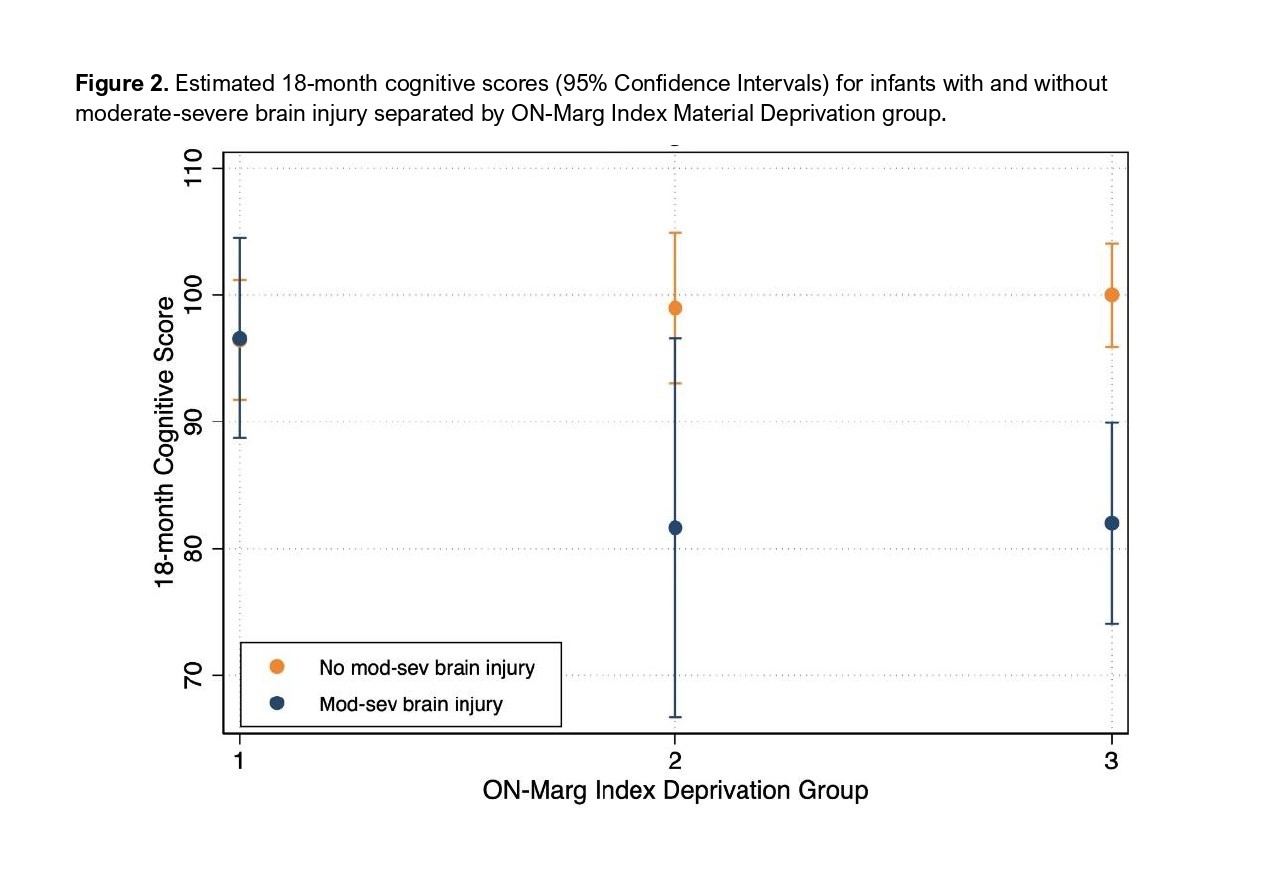Neonatology
Session: Neonatal Neurology 3: Clinical
43 - Intersection of social disparity and brain injury in children with congenital heart disease: Modifying neurodevelopmental outcomes
Friday, May 3, 2024
5:15 PM - 7:15 PM ET
Poster Number: 43
Publication Number: 43.172
Publication Number: 43.172

Pearl Zaki, MD (she/her/hers)
Paediatric Neurology Resident
University of Toronto Temerty Faculty of Medicine
Toronto, Ontario, Canada
Presenting Author(s)
Background: Children with congenital heart disease (CHD) are at elevated risk for brain injury and neurodevelopmental impairments. Social disparity modifies the relationship between brain injury and neurodevelopment in children born preterm.
Objective: We assessed whether social disparity modified associations between brain injury and cognition in children with CHD.
Design/Methods: We included a retrospective cohort of 245 children with CHD who underwent neonatal cardiac surgery with pre- or post-operative brain MRI. Moderate-severe brain injury included moderate-severe white matter injury, stroke, or grade 3-4 intraventricular hemorrhage. ON-Marg, an area-based index, was used to assess social disparity, specifically material deprivation. Children were separated into 3 groups, Group 1 representing the least deprived and 3, the most deprived. 18-month cognitive outcomes were assessed with Bayley-3. Multivariable linear regression models were used to assess whether material deprivation modified associations between brain injury and cognition using an interaction term, adjusting for clinical confounders that were significantly associated with cognitive outcome in univariate regressions (p < 0.05).
Results: Among the material deprivation groups, there were significant differences in heart lesion, completion of and age at balloon septostomy , and post-operative cardiac arrest (p < 0.05). In the final regression model, accounting for heart lesion and post-operative failure to thrive , the relationship between brain injury and cognition was modified by material deprivation (p=0.01). Poorer outcomes were observed for infants with brain injury in the most deprived group only (Figure 2).
Conclusion(s): Associations between brain injury and cognition are modified by social differences in children with CHD. Further understanding of social disparity and its role in these relationships can reveal strategies to optimize neurodevelopment equitably.
.jpg)

